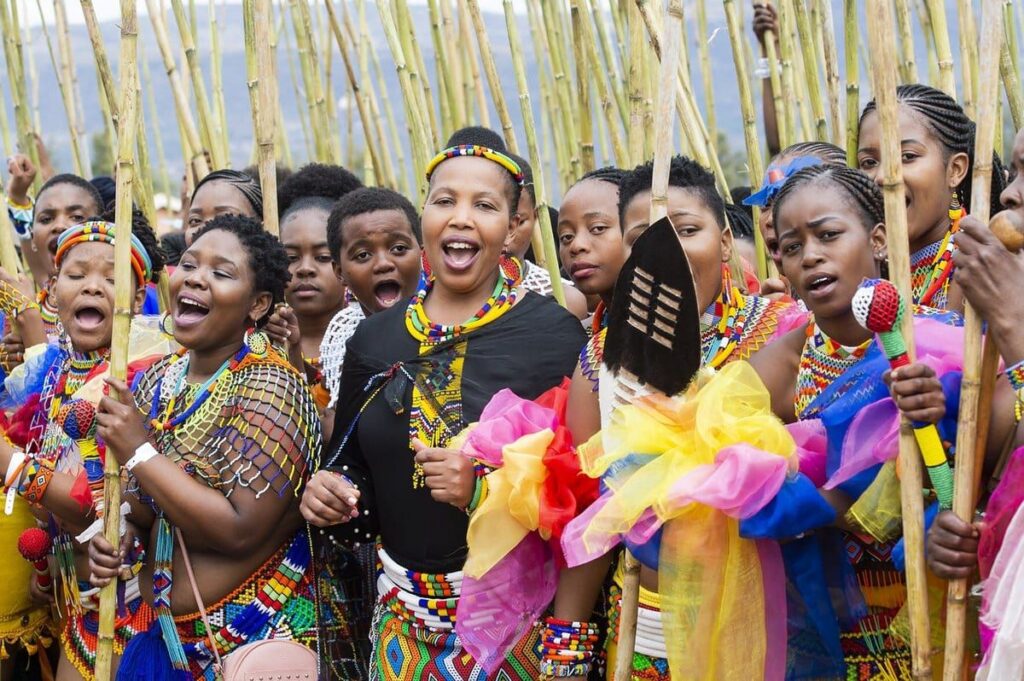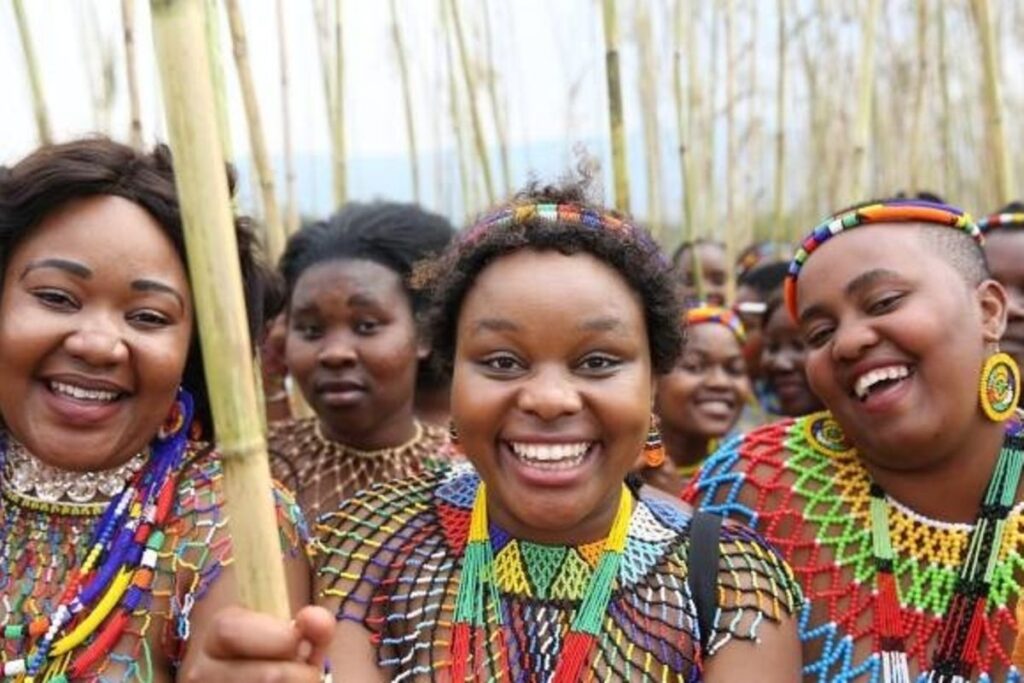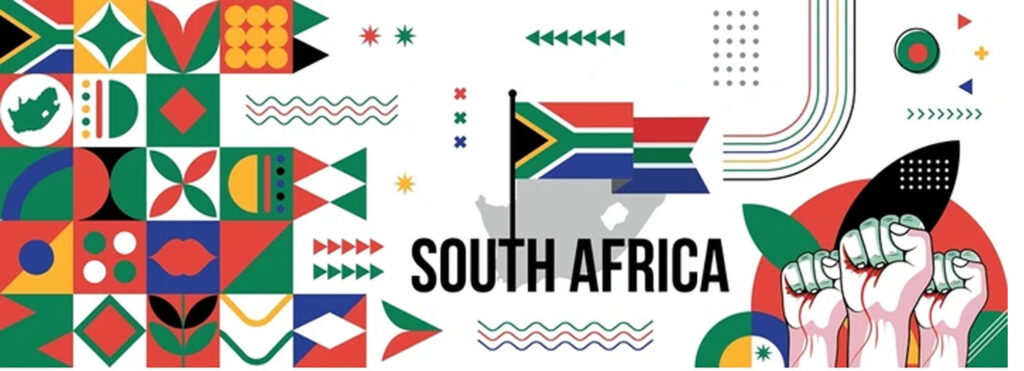4o
South Africa is a diverse country with a rich cultural history, located at the southernmost tip of Africa. Known for its breathtaking landscapes, wildlife, and cultural heritage, the country has 11 official languages and numerous ethnic groups. Here’s a broad overview of South Africa, including its festivals and special events:
1. Geography & Major Cities
- Location: Southern tip of Africa, bordered by Namibia, Botswana, Zimbabwe, Mozambique, Swaziland, and Lesotho (enclave within South Africa).
- Capital Cities:
- Pretoria (administrative)
- Cape Town (legislative)
- Bloemfontein (judicial)
- Major Cities: Johannesburg, Durban, Port Elizabeth, Soweto.
2. Languages & Ethnic Groups
- Languages: 11 official languages including Zulu, Xhosa, Afrikaans, English, Setswana, and Sesotho.
- Ethnic Groups: Zulu, Xhosa, Afrikaners, Sotho, Tswana, Indian South Africans, and Colored (mixed-race).
3. Economy
- South Africa has a mixed economy, being one of the largest in Africa.
- Key industries include mining (gold, platinum, diamonds), agriculture, tourism, and manufacturing.
4. History & Politics
- Apartheid: South Africa was known for its racial segregation policy, which lasted from 1948 to the early 1990s.
- Post-Apartheid: The country transitioned to democracy in 1994 with Nelson Mandela becoming the first Black president.
- Current Politics: A constitutional democracy with regular elections.
5. Tourism
- Famous for Kruger National Park, Table Mountain, Robben Island, Garden Route, and Cape Winelands.
- Popular activities include safaris, hiking, wine tasting, and diving with sharks.
6. Culture & Festivals

South Africa’s cultural festivals are a reflection of its diverse heritage, with influences from indigenous traditions, European colonization, and Asian communities.
Major Public Holidays & Festivals:
- New Year’s Day – January 1
- Human Rights Day – March 21
- Celebrates the establishment of human rights in post-apartheid South Africa.
- Freedom Day – April 27
- Marks the anniversary of the first democratic elections in 1994.
- Workers’ Day – May 1
- Similar to Labor Day, celebrates the rights of workers.
- Youth Day – June 16
- Commemorates the Soweto Uprising in 1976 where young people protested against the apartheid government’s policies.
- National Women’s Day – August 9
- Recognizes the important role of women in South Africa’s history, particularly the march against apartheid laws in 1956.
- Heritage Day – September 24
- Celebrates South Africa’s diverse cultures, languages, and heritage. Braai (barbecue) is a big part of the celebrations.
- Day of Reconciliation – December 16
- Promotes reconciliation and national unity following apartheid.
Special Festivals & Events:
- Cape Town International Jazz Festival – March/April
- One of the largest jazz festivals in Africa, featuring international and local artists.
- National Arts Festival (Grahamstown Arts Festival) – June/July
- The largest celebration of arts and culture in Africa, held in Makhanda (formerly Grahamstown), featuring drama, dance, visual arts, and music.
- Durban July – July
- A prestigious horse racing event known for its glamorous fashion and entertainment.
- Oppikoppi Music Festival – August
- A major rock and alternative music festival held in the Limpopo Province.
- Knysna Oyster Festival – July
- A 10-day celebration in Knysna that includes sporting events, gourmet food, and oyster-tasting.
- Diwali Festival – October/November
- Celebrated by South Africa’s Indian community, especially in cities like Durban, where there’s a large Indian population.
- Cape Town Minstrel Carnival (Kaapse Klopse) – January
- A colorful, historical carnival held in Cape Town, celebrating the New Year with parades, music, and traditional costumes.
- Mandela Day – July 18
- Celebrated in honor of Nelson Mandela’s birthday, encouraging acts of kindness and volunteerism.
- Bastille Day Festival – July
- Held in Franschhoek, celebrating the French heritage with food, wine, and cultural events.
- AfrikaBurn – April
- An offshoot of the US-based Burning Man, held in the Karoo desert, celebrating art and self-expression.
7. Cuisine
South African cuisine is influenced by indigenous cultures, as well as Dutch, British, Indian, and Malay flavors. Popular dishes include:
- Braai (barbecue)
- Bobotie (spiced minced meat with an egg-based topping)
- Biltong (dried, cured meat)
- Bunny Chow (a hollowed-out loaf of bread filled with curry)
- Cape Malay curry (fragrant and spiced with a unique blend)
8. Wildlife & Natural Beauty

South Africa is known for its natural reserves and wildlife. The Big Five (lion, elephant, buffalo, leopard, rhino) are frequently seen in game parks such as Kruger National Park. The country is also famous for its wine regions, scenic coastlines, and mountain ranges like the Drakensberg.
9. Sports
- Soccer (Football) is widely popular. South Africa hosted the 2010 FIFA World Cup.
- Rugby is a major sport, with the national team, the Springboks, winning the Rugby World Cup three times (1995, 2007, 2019).
- Cricket is also significant, with South Africa being a major cricketing nation.
These festivals and special events showcase South Africa’s rich cultural diversity, history, and natural beauty.

